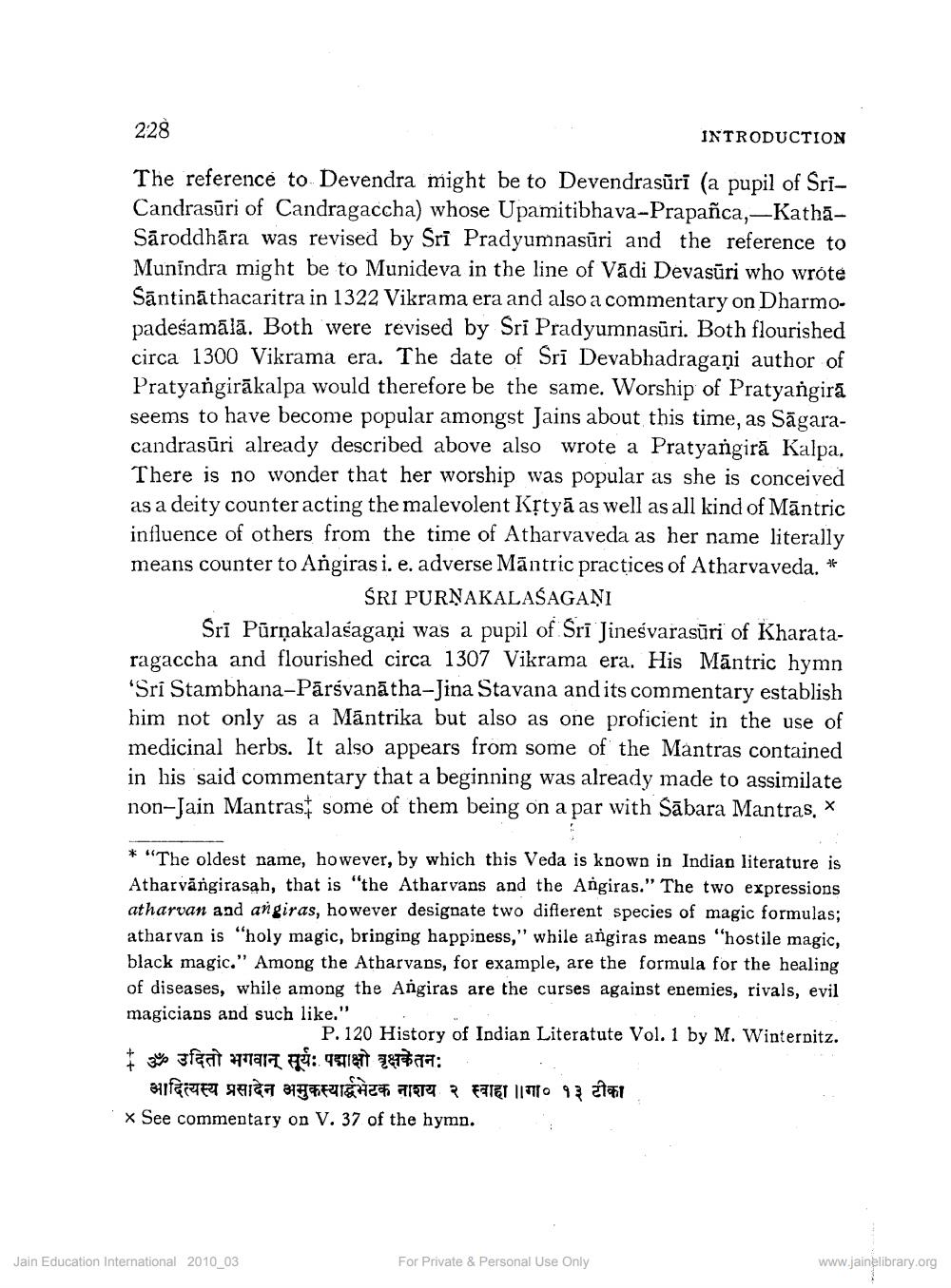________________
228
INTRODUCTION
The reference to Devendra might be to Devendrasūri (a pupil of SriCandrasūri of Candragaccha) whose Upamitibhava-Prapañca,-KathāSāroddhāra was revised by Sri Pradyumnasūri and the reference to Munindra might be to Munideva in the line of Vadi Devasūri who wrote Sāntināthacaritra in 1322 Vikrama era and also a commentary on Dharmopadeśamālā. Both were revised by Sri Pradyumnasūri. Both flourished circa 1300 Vikrama era. The date of Sri Devabhadragaņi author of Pratyangirākalpa would therefore be the same. Worship of Pratyangira seems to have become popular amongst Jains about this time, as Sāgaracandrasūri already described above also wrote a Pratyangirā Kalpa. There is no wonder that her worship was popular as she is conceived as a deity counter acting the malevolent Krtyā as well as all kind of Māntric influence of others from the time of Atharvaveda as her name literally means counter to Angiras i. e, adverse Mantric practices of Atharvaveda. *
ŚRI PURŅAKALASAGANI Sri Purnakalasagani was a pupil of Sri Jinesvarasūri of Kharataragaccha and flourished circa 1307 Vikrama era. His Māntric hymn 'Sri Stambhana-Pārsvanātha-Jina Stavana and its commentary establish him not only as a Mántrika but also as one proficient in the use of medicinal herbs. It also appears from some of the Mantras contained in his said commentary that a beginning was already made to assimilate non-Jain Mantras some of them being on a par with Sābara Mantras. *
* "The oldest name, however, by which this Veda is known in Indian literature is Atharvangirasah, that is "the Atharvans and the Angiras." The two expressions atharvan and angiras, however designate two different species of magic formulas; atharvan is "holy magic, bringing happiness," while angiras means "hostile magic, black magic." Among the Atharvans, for example, are the formula for the healing of diseases, while among the Angiras are the curses against enemies, rivals, evil magicians and such like."
P. 120 History of Indian Literatute Vol. 1 by M. Winternitz. * ॐ उदितो भगवान् सूर्यः पद्माक्षो वृक्षकेतनः
आदित्यस्य प्रसादेन अमुकस्या भेटक नाशय २ स्वाहा ।।गा० १३ टीका * See commentary on V. 37 of the hymn.
Jain Education International 2010_03
For Private & Personal Use Only
www.jainelibrary.org




